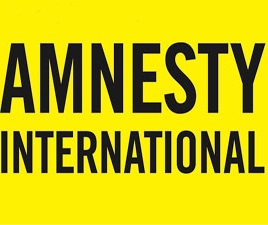
28.08.2015.
Amnesty: BiH authorities to truly commit to resolving of enforced disappearances
Amnessty international, BiH, War CrimesAMNESTY INTERNATIONAL
PUBLIC STATEMENT
AI Index: EUR 63/2343/2015
27 August 2015
Bosnia and Herzegovina: Justice for the families of the missing must be a priority for the state
On the occasion of the International Day of the Disappeared on 30 August, Amnesty International is urging authorities in Bosnia and Herzegovina to truly commit to resolving the over 8,000 outstanding cases of enforced disappearances from the 1992-1995 war, and to provide access to truth, justice and social-economic rights for the families.
Throughout July and August, hundreds of Amnesty International activists have written letters to Denis Zvizdic, the Chairman of the Council of Ministers of BiH to personally urge the central government to implement a Law on Missing Persons, adopted in 2004 but never enforced. This law requires the state to establish a fund to support the families of the missing, which is of crucial importance for guaranteeing their social and economic rights. Families are often impoverished, having lost the sole breadwinner during the war. The fund would also be a lifeline for organisations supporting relatives and advocating for better access to truth.
Amnesty International calls on the authorities to ensure adequate resourcing of the national Missing Persons Institute (MPI) established by the law, which has seen its funding cut year after year, leading to lack of adequate technical and human resources, little capacity for new exhumations, as well as lengthy and limited verification of evidence and identification of mortal remains.
The association of citizens of Prijedor Izvor, an NGO working to uncover the fate of the thousands disappeared in the area, including through documenting exhumations also reported significant problems in collecting information on possible locations hiding the mortal remains of missing persons. Although large capacities lay within the police agencies, these have never been put to actual use. The entire burden has been assigned to the poorly equipped local commissions that were later joined up within the MPI. Further, very few prosecutors are involved in exhumation processes. At times, it is a matter of several years before a prosecutor inspects a location suspected to hide a mass grave. War crimes trials involving enforced disappearances do not result in new exhumations, even in cases concluded with a plea agreement to obtain location information.
In early July, a high level delegation from the International Commission on Missing Persons (ICMP) met with the Chairman of the Council of Ministers. During this meeting, Mr Zvizdic said that the Council of Ministers is “establishing its policy agenda and every one of us fully understands how important the issue of missing persons is for Bosnia and Herzegovina’s stability and recovery. We are committed to carrying this process forward.”1
Amnesty International calls on the Council of Ministers to follow up on this statement and initiate a formal process to guarantee adequate budgetary support to the MPI and the establishment of the fund to support the families.
Twenty years after the end of the war in Bosnia and Herzegovina, no more time can be wasted before the fate of all those disappeared is clarified, and families are provided with access to truth, justice and reparation.
Further information
Amnesty International notes the codification in May of enforced disappearance as a criminal offence, shrinking the space for impunity and allowing increased access to justice for victims by introducing a separate article (190a), and bringing the code in line with the International Convention for the Protection of All Persons from Enforced Disappearance, ratified by Bosnia and Herzegovina in 2012.
In September 2014, the UN Working Group on Enforced and Involuntary Disappearances submitted its latest report on BiH, noting grave concerns at the non-establishment of the fund to support the families, depriving victims of reparation. It also stressed the need to strengthen the MPI as the central institution for the tracing of the disappeared persons.2
The association of citizens of Prijedor Izvor gathers information about missing persons, advocates for the status of civilian victims to be recognized and provides support to witnesses and the judiciary in war crimes trials. The association aims to establish a culture of remembrance through fact-gathering and commemoration as well as art installations in public spaces, including on the occasion of the International Day of the Disappeared on the main square of the ethnically divided town of Prijedor.
1. ICMP: Authorities Will Sustain Search for the Missing, 10 July 2015, http://www.ic-mp.org/?story=authorities-will-sustain-search-for-the-missing.
2. Report of the Working Group on Enforced or Involuntary Disappearances, Addendum: Follow-up report to the recommendations made by the Working Group, Missions to Argentina and Bosnia and Herzegovina, 8 September 2014, http://daccess-dds-ny.un.org/doc/UNDOC/GEN/G14/157/91/PDF/G1415791.pdf?OpenElement














